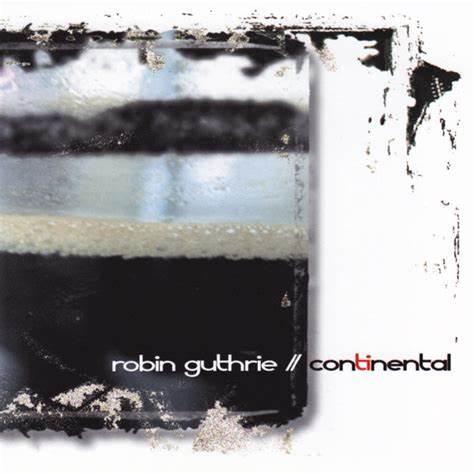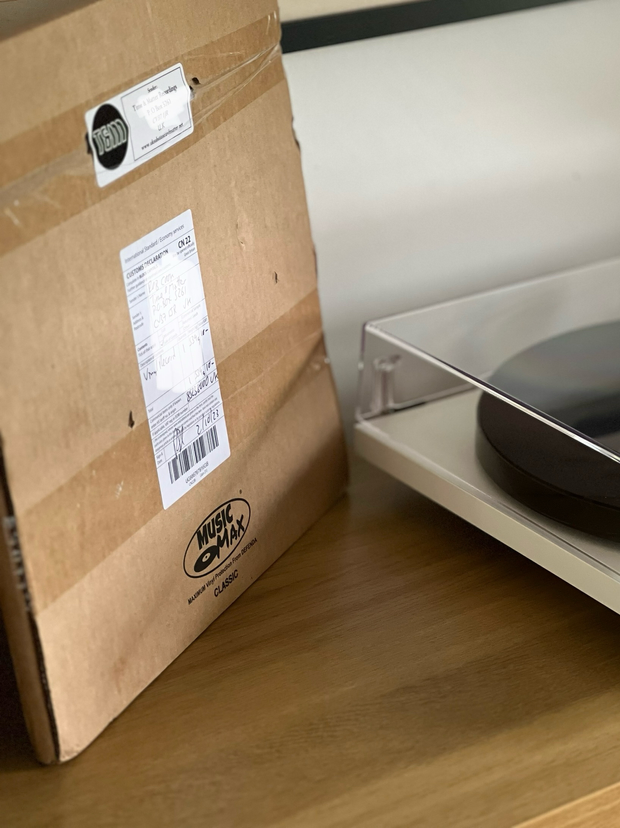There is a certain tension coming from within this latest Robin Guthrie release. It seems on the face of it that Continental is just another ambient, collection of haunting melodies. The songs swirl and sweep like an abandoned shopping bag that has been caught by the wind. They hold the listener’s attention, as s/he waits for some other dramatic, unexpected event to take place. Sometimes it happens, and the bag swoops into the air with a vitality and expression that one does not come to expect from a discarded object. On other occasions, the unwanted container of tomorrow’s debris just sits there and does pretty much what one expects it to do. And still it holds the attention as if it were a traveller recounting a ghost story to an audience that have heard the tale oh, so many times before. After all, it is not the story that is important but the manner in which it is told.

ROBIN GUTHRIE
CONTINENTAL
Darla
2006-05-16
This particular haunting tale is embellished to the point of distraction. However, there are no surprises here, nothing that jumps out at you, shocks you, or makes your heart pound. Every song, every step of the journey is told in a manner that Robin Guthrie has used on a good many of his recordings. It is the familiarity of the 10 tunes on Continental that is so discomforting. What makes this particular recording so spooky is that it is in fact haunted. The spectre of the Cocteau Twins drifts in and out of each expression; the absence of Elizabeth Fraser is to coin a cliché “conspicuous”. And this adds to the lost feeling that the music introduces in you. So is this release any more than karaoke Cocteau Twins, without a song sheet?
Well … no. Continental doesn’t really try to be anything that it isn’t. There can be no claims of capturing new musical territory or of Guthrie pushing himself beyond what we all know him to be capable of. This is plain and simple, the Cocteaus sans voice. There are moments of trepidation, like on “Crescent”, where Guthrie rocks out on the guitar and adds some vocals. However, these are little more than backing vocals and never come close enough to the foreground to be considered anything else. Indeed, their inclusion only made my yearning for an impish female voice, making sounds that cannot be mistaken for words, even stronger.
Where Guthrie does succeed is when he serves up material with more of an ambient-soundrack-for-a-future-film feel to it. Tracks such as “Last Exit” and “Pale” (coincidentally together at the end of the album) are truly beautiful even if they do sound a little like Bill Nelson. But when was that ever an insult?
Overall, Continental really does retread very well worn territory for Mr. Guthrie. However, I am fairly certain that fans of his work would want nothing else. As for new converts, if you’re under the age of 30, or you lived in a vacuum (as in space, not a cleaning tool) in the 1980s, and have never encountered recorded artefacts of the Cocteau Twins, then you may well find this a good addition to your “chill out” section. If you fall into none of those categories, then it is likely that you may be nonplussed as to how this recording will enrich your life.
This review was originally posted on pop matters.com
https://www.popmatters.com/robin-guthrie-continental-2495687716.html



